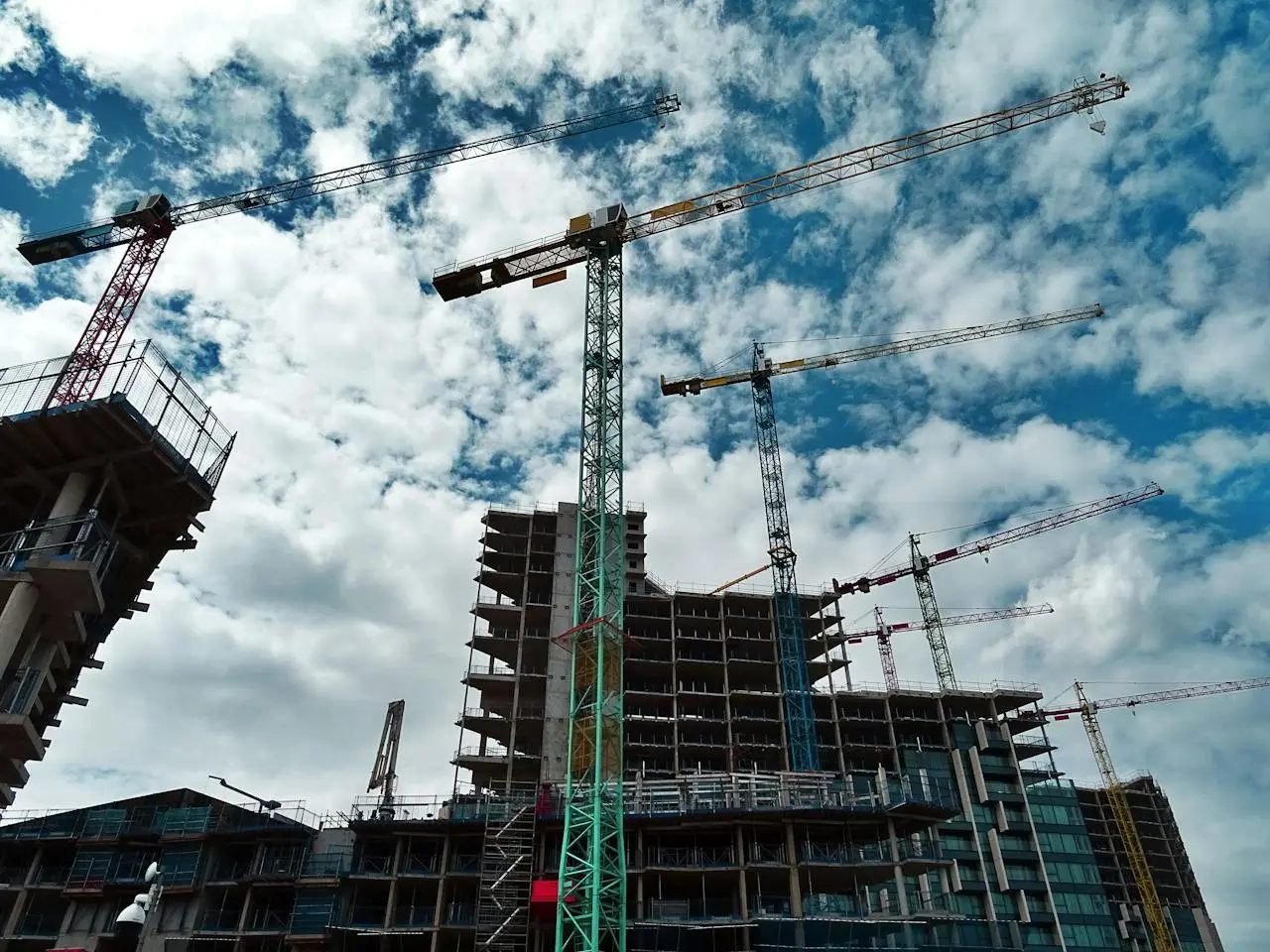
Tackling The 5 Biggest Issues Facing The Construction Industry
The construction sector is central and vital in Nigeria’s economic landscape. This industry is growing at an impressive rate, and it’s expected to continue growing in the coming years. However, five major issues hinder its full potential beneath the cranes and concrete. Let’s explore these challenges and identify solutions to build a stronger, more sustainable future for Nigerian construction.
The Escalating Cost Of Construction
Whilst the Nigerian construction industry is booming, the escalating cost of materials threatens the continual growth of this economic sector. Essential materials like cement and steel are skyrocketing, squeezing business profit margins and making quality housing a distant dream for many Nigerians.
This isn’t just a financial issue; it’s a social one. High costs trap millions in substandard housing, jeopardising their health and safety. Innovation and strategic action are critical to break free from this grip.
To solve this problem, these materials must be made locally to reduce import prices and stabilise prices in the market. However, these locally produced materials will be more cost-effective, especially if made from sustainable materials.
Investing in local production and embracing sustainable alternatives is a win-win. It strengthens the economy, protects the environment, and makes quality housing attainable for all Nigerians. Let’s work together to build a future where construction isn’t just about concrete and steel but about innovation, sustainability, and putting roofs over heads, not burdens on shoulders.
Shortage Of Skilled Labour
An ageing workforce coupled with insufficient training has led to a noticeable skills gap, adversely affecting the quality and efficiency of construction projects.
The key to addressing this challenge lies in establishing robust vocational training programs forged through partnerships with construction companies. Beautiful vocational centres are abuzz with enthusiastic young Nigerians refining their masonry, carpentry, and welding skills. These programs should impart practical training and instil a solid theoretical foundation, enabling graduates to integrate into the workforce seamlessly.
To attract top talent, competitive salaries and appealing career paths must be offered, making the construction industry an enticing and fulfilling career option.
Bridging the skills gap necessitates a concerted effort to nurture young talent, encourage collaboration across generations, and create an environment that rewards skilled professionals. This strategic investment in human capital will enhance project quality and efficiency and contribute to a thriving construction sector, promising a brighter future for the Nigerian workforce.
Poor Quality Of Products And Services
The prevalence of substandard materials, lax oversight, and insufficient quality control measures within the construction industry contribute to construction defects and safety hazards. Addressing this issue requires a comprehensive approach that emphasises the use of high-quality materials, rigorous oversight protocols, and stringent quality control measures to ensure the safety and longevity of constructed structures.
Corruption and Fraud
From procurement irregularities to bid-rigging, unethical practices inflate costs and undermine project outcomes.
To curb this, solid anti-corruption measures should be implemented and enforced transparently. Encourage whistle-blower protection and public reporting of malpractices—Prioritise digitalisation in procurement and project management to enhance transparency and accountability.
Underdeveloped Road Infrastructure
Road networks need to improve the transportation of materials and ensure efficient project delivery.
With the increase of public-private partnerships for infrastructure development, prioritising maintenance and improvement of existing roads while building new ones strategically will explore innovative transportation solutions like drones for material delivery in remote areas.
Addressing these challenges requires a collective effort from government, industry players, and educational institutions. By actively implementing these solutions, Nigeria and Africa as a continent can build a stronger, more vibrant construction sector that delivers quality housing, creates jobs, and fuels sustainable economic growth for its people.
At Carnegie Industries, we are committed to quality, not just in our products but the construction industry. We are creating materials that fit the dynamic demands of our customers, and we are determined to change the narrative of the construction industry with our solutions.
Let’s continue the conversation! Share your thoughts and ideas on overcoming these challenges in the comments below.
Do you have any specific experiences or examples you’d like to share related to these issues? Follow us on social media to continue the discussion.




